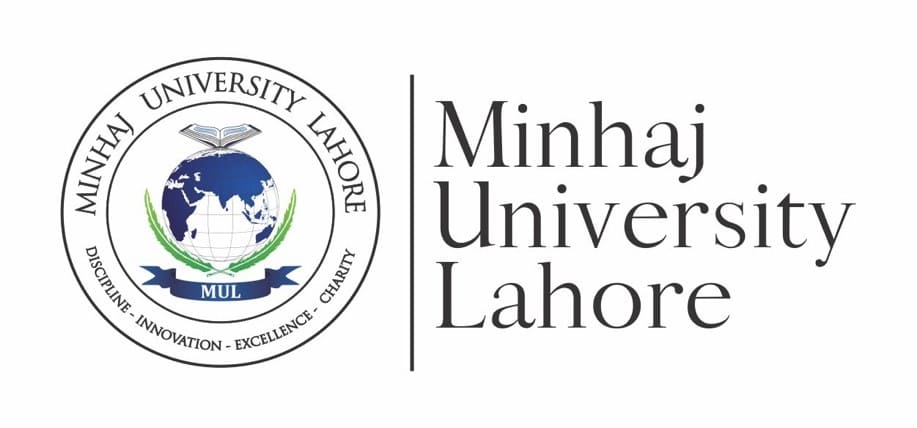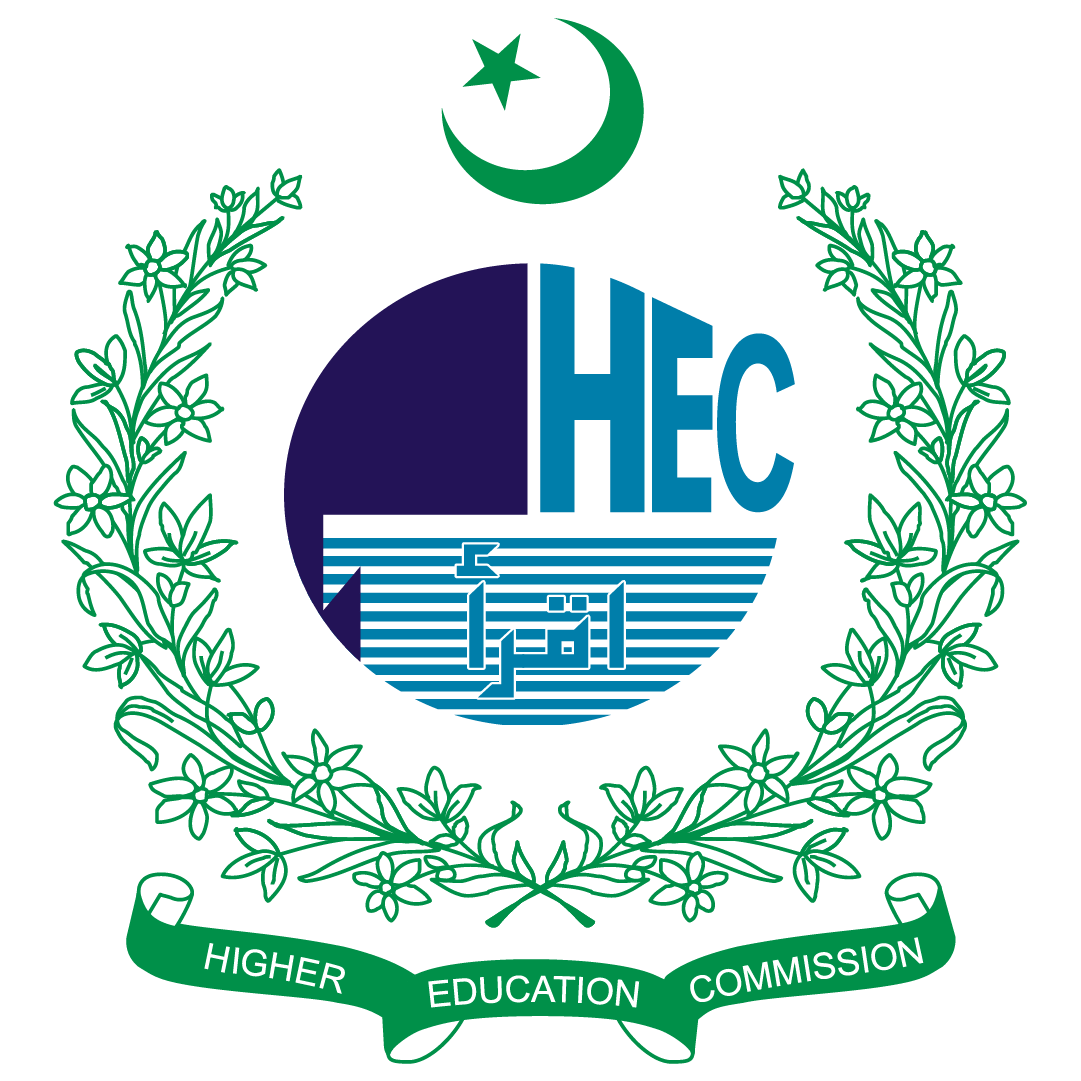The Role of Islamic Finance in Enhancing Fiscal Space and Debt Sustainability: Evidence from D8 Countries with a Moderating Role of Institutional Quality
DOI:
https://doi.org/10.58932/MULD0049Keywords:
Islamic finance, fiscal space, debt sustainability, institutional quality, Sukuk, D-8 countriesAbstract
This study investigates the role of Islamic finance in enhancing fiscal space and debt sustainability in D-8 countries, with a special focus on the moderating effect of institutional quality. Using the Driscoll-Kray estimator, the research analyzes key Islamic finance instruments, Sukuk, Takaful, and Islamic banking assets, along with their interactions with institutional quality. The findings reveal that Sukuk alone has a weak and statistically insignificant impact on both fiscal space and debt sustainability. However, when combined with higher institutional quality, Sukuk’s positive effect on fiscal space becomes significant, highlighting the importance of strong governance. Takaful shows a marginally positive influence on fiscal space, but no significant effect on debt sustainability. Nevertheless, its effectiveness improves when institutional quality is high, demonstrating that stronger institutions can enhance Takaful’s role in fiscal development. In contrast, Islamic banking assets negatively and significantly affect both fiscal space and debt sustainability. This negative impact is intensified by higher institutional quality, suggesting that unchecked growth of Islamic banking assets could undermine fiscal stability, especially in well-governed environments. The study also finds that economic openness significantly reduces both fiscal space and debt sustainability, while institutional quality plays a vital role in strengthening debt sustainability. Overall, the results underscore the critical moderating role of institutional quality in amplifying or mitigating the effects of Islamic finance. The study concludes that D-8 countries should focus on enhancing institutional quality to fully leverage the potential of Islamic finance, particularly Sukuk, for sustainable fiscal growth and improved debt management.
© 2025 The Author(s). Licensed under CC BY-NC 4.0.
References
Aderemi, A. M. R., & Ishak, M. S. I. (2023). Qard Hasan as a feasible Islamic financial instrument for crowdfunding: Its potential and possible application for financing micro-enterprises in Malaysia. Qualitative Research in Financial Markets, 15(1), 58–76. https://doi.org/10.1108/QRFM-06-2022-0109
Ahmad, S., Bhatti, M. A. A., & Imam, M. A. (2023). Balancing Control and Collaboration: Project Manager Accountability in Multi-Layered Governance Systems. Journal of Professional Research in Social Sciences, 10(2), 134-155.
Alhammadi, S., Archer, S., & Aloumi, D. (2024). Sukuk structure and risk exposures: Evidence from an originator perspective. Journal of Islamic Accounting and Business Research. https://doi.org/10.1108/JIABR-03-2023-0072
Anwer, Z., Khan, S., & Abu Bakar, M. (2020). Sharīʿah-compliant central banking practices: Lessons from Muslim countries’ experience. ISRA International Journal of Islamic Finance, 12(1), 7–26. https://doi.org/10.1108/IJIF-05-2019-0069
Ahmad, S., Ahmad, A., Shair, W., & Bhatti, M. A. A. (2022). Unlocking Pakistan's Youth Potential: A Comprehensive Analysis of Youth Development Indices and Strategic Alignment with the UN Sustainable Development Goals. Journal of Professional Research in Social Sciences, 9(2), 80-95.
Asutay, M., & Ubaidillah. (2024). Examining the impact of intellectual capital performance on financial performance in Islamic banks. Journal of the Knowledge Economy, 15(1), 1231–1263. https://doi.org/10.1007/s13132-022-00968-0
Akbar, A., Ahmad, S., Ali, M., Fayyaz, M. T., Ali, I., & Bhatti, M. A. A. (2024). Employee Development and Training: How HRM Helps in Staying Competitive in the Changing Market Condition. Al-Qanṭara.
Anjum, G., & Bhatti, M. A. A. Discover the Impact of Internet Usage on the Academic Performance of Library and Information Science Students. Indonesian Journal of Multidiciplinary Research, 4(2), 377-388.
Baita, A. J., Malami, H. U., & Al-Faryan, M. A. S. (2023). Fiscal policy and sukuk market development in OIC countries. Journal of Islamic Accounting and Business Research, 14(8), 1216–1231. https://doi.org/10.1108/JIABR-01-2022-0020
Bashir, U., Saeed, S., & Abbas, S. K. (2020). Strategies for New Product Development in an Emerging Market. Advances in Social Sciences Research Journal, 7(4), 393-397.
Bhatti, M. A. A., & Nazir, M. U. (2024). The Impact of Project Process Management on Sustainable Project Success in the Construction Sector: The Moderating Role of Risk Management Practices. Bulletin of Business and Economics (BBE), 13(2), 1065-1072.
Beck, T., Iqbal, Z., & Mutlu, R. (2020). Do Islamic banks contribute to risk sharing? In Z. Iqbal, T. Akin, N. Maghrebi, & A. Mirakhor (Eds.), Handbook of Islamic Banking and Finance (Vol. 10). Edward Elgar Publishing.
Bano, S., Afzal, H., ul Hassan, R., & Bashir, U. Well-Being Dimensions and Environmental Protection: The Role of Health, Life Satisfaction, and Financial Satisfaction Waqas Shair1.
Benaicha, M. (2020). An analysis of the normative parameters of reward and risk in Islamic finance. ISRA International Journal of Islamic Finance, 12(3), 303–323. https://doi.org/10.1108/IJIF-09-2019-0136
Danlami, M. R., Abduh, M., & Abdul Razak, L. (2022). CAMELS, risk-sharing financing, institutional quality and stability of Islamic banks: Evidence from 6 OIC countries. Journal of Islamic Accounting and Business Research, 13(8), 1155–1175. https://doi.org/10.1108/JIABR-10-2020-0315
Delle Foglie, A., & Keshminder, J. S. (2022). Challenges and opportunities of SRI sukuk toward financial system sustainability: A bibliometric and systematic literature review. International Journal of Emerging Markets. https://doi.org/10.1108/IJOEM-07-2021-1076
Diniyya, A. A., Aulia, M., & Wahyudi, R. (2020). Financial technology regulation in Malaysia and Indonesia: A comparative study. Ihtifaz: Journal of Islamic Economics, Finance, and Banking, 3(2), 67–87. https://doi.org/10.12928/ihtifaz.v3i2.2406
Eidouzahi, E., Mohebbi, M., & Zeraatkish, S. Y. (2023). The study of factors affecting the economic growth of Group D8 (8 Islamic developing countries). Economic Growth and Development Research, 13(52), 31–46.
Fauzi, A., & Qizam, I. (2024). The causality relationship of state Sukuk with economic growth in Indonesia and Malaysia. JAMBE: Jurnal Akuntansi Manajemen Bisnis dan Ekonomi, 1(1). https://doi.org/10.37058/jambe.v1i1.7275
Franzoni, S., & Ait Allali, A. (2018). Principles of Islamic finance and principles of corporate social responsibility: What convergence? Sustainability, 10(3), 637. https://doi.org/10.3390/su10030637
Ghaffar, M. A., Shair, W., Afzal, H., ul Hassan, R., & Bashir, U. (2024). Income and Income Aspiration: Exploring the Impact on Life and Financial Satisfaction. Journal of Economic Impact, 6(3), 257-263.
Harahap, B., Risfandy, T., & Futri, I. N. (2023). Islamic law, Islamic finance, and sustainable development goals: A systematic literature review. Sustainability, 15(8), 6626. https://doi.org/10.3390/su15086626
Hasangholipoure, H., Chirani, E., Mirbargkar, S. M., & Kheradyar, S. (2021). Offering catastrophic risk management framework by alternative risk transfer instruments to the Islamic capital market with Cat Takaful (CT) Sukuk. Iranian Journal of Finance, 5(3), 78–107. https://doi.org/10.22034/ijf.2021.262951.1160
Hassan, M. K., & Raza Rabbani, M. (2023). Sharia governance standards and the role of AAOIFI: A comprehensive literature review and future research agenda. Journal of Islamic Accounting and Business Research, 14(5), 677–698. https://doi.org/10.1108/JIABR-07-2022-0213
Ijaz, S. T. (2025). Valuing Nature's Time: Integrating Temporality into Financial Decision-Making for Sustainable Development. Ethics International Press.
Ijaz, S. T., & Chughtai, S. (2022). The impact of financial, economic and environmental factors on energy efficiency, intensity, and dependence: The moderating role of governance and institutional quality. International Journal of Energy Economics and Policy, 12(4), 15–31. https://doi.org/10.32479/ijeep.13218
Ishak, M. S. I., & Rahman, M. H. (2021). Equity-based Islamic crowdfunding in Malaysia: A potential application for mudharabah. Qualitative Research in Financial Markets, 13(2), 183–198. https://doi.org/10.1108/QRFM-07-2020-0134
Ledhem, M. A. (2022). The financial stability of Islamic banks and sukuk market development: Is the effect complementary or competitive? Borsa Istanbul Review, 22, S79–S91. https://doi.org/10.1016/j.bir.2021.11.001
Mawardi, I., Al Mustofa, M. U., Widiastuti, T., & Ghozali, M. (2024). The influence of institutional quality, economic freedom, and technological development on Islamic financial development in OIC countries. Journal of Open Innovation: Technology, Market, and Complexity, 10(2), 100279. https://doi.org/10.3390/joitmc10020120
Mawardi, I., Widiastuti, T., & Al Mustofa, M. U. (2022). Constraints and strategies for municipal Sukuk issuance in Indonesia. Journal of Islamic Accounting and Business Research, 13(3), 464–485. https://doi.org/10.1108/JIABR-06-2020-0171
Menne, F., Mardjuni, S., Yusuf, M., Ruslan, M., Arifuddin, A., & Iskandar, I. (2023). Sharia economy, Islamic financial performance and factors that influence it—Evidence from Indonesia. Economies, 11(4), 111. https://doi.org/10.3390/economies11040111
Mensi, W., Hammoudeh, S., Tiwari, A. K., & Al-Yahyaee, K. H. (2020). Impact of Islamic banking development and major macroeconomic variables on economic growth for Islamic countries: Evidence from panel smooth transition models. Economic Systems, 44(1), 100739. https://doi.org/10.1016/j.ecosys.2019.100739
Naim, A. M., Isa, M. Y., & Hamid, M. L. (2020). Islamic finance: Legal frameworks, practices and Shariah criteria review. UUM Press.
Naz, S. A., & Gulzar, S. (2022). Impact of Islamic finance on economic growth: An empirical analysis of Muslim countries. The Singapore Economic Review, 67(1), 245–265. https://doi.org/10.1142/S0217590820500020
Nugraheni, P., & Muhammad, R. (2020). Innovation in the takaful industry: A strategy to expand the takaful market in Indonesia. Journal of Islamic Marketing, 11(6), 1313–1326. https://doi.org/10.1108/JIMA-01-2019-0014
Pirgaip, B., Arslan-Ayaydin, Ö, & Karan, M. B. (2021). Does Sukuk provide diversification benefits to conventional bond investors? Evidence from Turkey. Global Finance Journal, 50, 100533. https://doi.org/10.1016/j.gfj.2020.100533
Presbitero, A. F. (2022). Fiscal space: Asia’s fiscal safety net has shrunk. In The sustainability of Asia’s debt (pp. 269–298). Edward Elgar Publishing. https://doi.org/10.4337/9781802209995.00023
Razak, L. A., & Khan, S. (2023). The development and evolution of an Islamic capital market in Malaysia: Lessons for D-8 countries. In Economic integration among D-8 Muslim countries: Prospects and challenges (Vol. 1, pp. 279–300). UUM Press.
Rafaqat, M. ., Azad, F. ., Ahmad, S. ., Aijaz, K. ., Ikram, S. H. ., Bashir, U. ., Bhatti, M. A. A. ., & Saeed, S. . (2024). Impact of Governance and Strategy Performance on Employer Branding. Research Journal for Societal Issues, 6(2), 852–867.
Salamaliki, P. K., & Venetis, I. A. (2024). Fiscal space and policy response to financial crises: Market access and deficit concerns. Open Economies Review, 35(2), 323–361. https://doi.org/10.1007/s11079-023-09718-x
Saleem, A., Sági, J., & Setiawan, B. (2021). Islamic financial depth, financial intermediation, and sustainable economic growth: ARDL approach. Economies, 9(2), 49. https://doi.org/10.3390/economies9020049
Shuaib, A. A., & Sohail, M. (2022). The role of Islamic social finance in societal welfare: A case study of selected IFBOs in southwest Nigeria. International Journal of Islamic and Middle Eastern Finance and Management, 15(1), 83–99. https://doi.org/10.1108/IMEFM-03-2020-0141
Siddiqui, A. A., & tir Razia, E. (2020). Practitioners’ perspective: The premise of Islamic banking, disclosures, transparency, and investors’ confidence. Journal of Islamic Business and Management, 10(2), 436–440. https://doi.org/10.26501/jibm/2020.1002-013
Smaoui, H., Mimouni, K., & Temimi, A. (2020). The impact of Sukuk on the insolvency risk of conventional and Islamic banks. Applied Economics, 52(8), 806–824. https://doi.org/10.1080/00036846.2019.1656283
Sohail, H., & Arshed, N. (2022). Contribution of Islamic debt financing in entrepreneurship promoting financial sector transformation. International Journal of Management Research and Emerging Sciences, 12(2). https://doi.org/10.56536/ijmres.v12i2.172
Sudiro, B. A., & Ahmar, N. (2022). Murabahah financing, musyarakah, mudharabah, istishna and ijarah against sharia banking profit sharing. JFBA: Journal of Financial and Behavioural Accounting, 2(2), 37–44. https://doi.org/10.47603/jfba.v2i2.110
Thani, N. N., & Ibrahim, I. R. (2020). The development of Islamic banking and finance: The Malaysian experience. In W. C. L. Tay (Ed.), Research handbook on Asian financial law (pp. 368–386). Edward Elgar Publishing. https://doi.org/10.4337/9781788115328.00034
Tok, E., Yesuf, A. J., & Mohamed, A. (2022). Sustainable development goals and Islamic social finance: From policy divide to policy coherence and convergence. Sustainability, 14(11), 6875. https://doi.org/10.3390/su14116875
Widiastuti, T., Ningsih, S., Prasetyo, A., Mawardi, I., Herianingrum, S., Robani, A., & Hady, A. F. (2022). Developing an integrated model of Islamic social finance: Toward an effective governance framework. Heliyon, 8(9), e10519. https://doi.org/10.1016/j.heliyon.2022.e10519
Zaheer, S., & van Wijnbergen, S. (2024). Sukuk defaults: On distress resolution in Islamic finance. Qualitative Research in Financial Markets. https://doi.org/10.1108/QRFM-08-2022-0156
Zuhdi, M. N., Wulandari, R., & Setyowati, E. (2024). Analysis of the effect of inflation, gross domestic product (GDP), foreign currency exchange rates and interest rates on the profitability of Sharia commercial banks in Indonesia (Case study of Bank Muamalat for the 2007–2023 period). Journal of Islamic Monetary Economics and Finance, 10(1). https://doi.org/10.21098/jimf.v10i1.1756
Downloads
Published
How to Cite
Issue
Section
License
Copyright (c) 2025 Syeda Tayyaba Ijaz, Ayesha Sarwat

This work is licensed under a Creative Commons Attribution-NonCommercial 4.0 International License.









